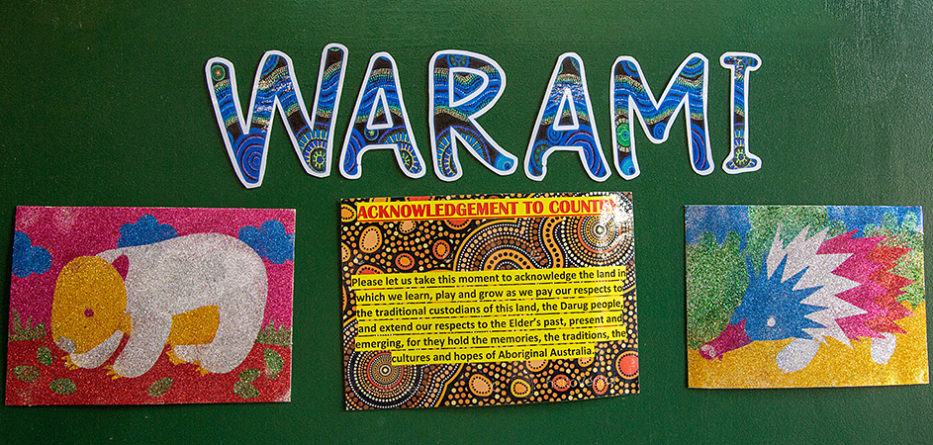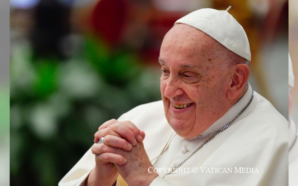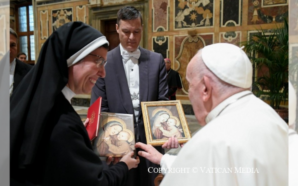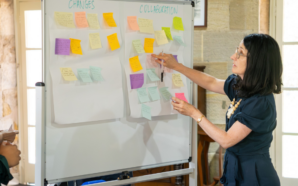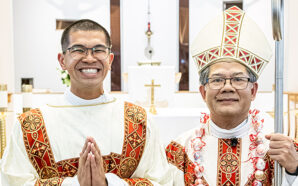Reconciliation
Reconciliation means understanding
Reconciliation means awareness
Reconciliation means compassion
You say you want reconciliation, but do you understand what it will take?
– Anita Heiss
The Diocese of Parramatta has the largest population of Aboriginal and Torres Strait Islander people of any region in Australia, at approximately 4% of the total population.
They may not be a dominant voice in our Catholic community, but a very important voice we need to listen more authentically to in 2021 in our Diocese.
Late in 2020, the Australian Catholic Bishops Conference (ACBC) published a response to The Light from the Southern Cross: Co-Responsible Governance in the Catholic Church in Australia. In their response, Recommendation 21 held my attention – That Aboriginal and Torres Strait Islander people be included in decision-making processes.
“The contribution of Aboriginal and Torres Strait Islander Catholics to the life, mission, spirituality, worship and governance of the Church is greatly appreciated but constitutes unfinished business: dioceses and parishes need to continue fostering and promoting the full participation of Aboriginal and Torres Strait Islander Catholics in the Church,” it says.
This got me reflecting. Is this happening in our Diocese? Could we build on our Reconciliation journey across the Diocese so far?
I am not sure I have the answers, but sharing my journey yarning with the First Nations community and doing some dreaming could be one way to strengthen our Reconciliation journey in the Diocese in 2021.
For me, caring for creation and seeking a deeper connection to country has been part of my life story for a very long time. Educated by the Good Samaritan nuns at Pennant Hills and with a strong social justice influence from my family, I have always sought new ways to build First Nations awareness in my life.
A mantra I know I carry with me in my life is from April Bright, “if you don’t care for country, country will not care for you.”
Now an elder member of St Madeleine Sophie Barat Parish, Kenthurst, I have continued to seek ways we as a parish can build connections with First Nations people.
For many years, our parish has been involved with the amazing women at Baabayn Aboriginal Corporation. It began with our annual hamper Mass but has grown to be a very collaborative relationship. Participating in the Baabayn Homework Club, an initiative that the Elders started to ensure education was given a focus and support for many struggling families in the Mt Druitt area, is a highlight of my week.
At various parish activities, an acknowledgement is undertaken. In 2019, the International Year of Indigenous Languages, I sought advice from our local Darug speakers about an acknowledgement I could do in language when needed.
It is wonderful to see our National Aboriginal and Torres Strait Islander Catholic Council (NATSICC) Acknowledgement plaque on the wall leading into our parish office. It was good to see that the Missionary and Evangelising Plenary Council Discernment paper has the recommendation that “NATSICC Acknowledgement Plaques be installed in all churches and schools.”
In our Diocese, CatholicCare incorporates the Aboriginal Catholic Services who support Aboriginal and Torres Strait Islander people through comprehensive and culturally appropriate programs designed to help contribute to their social wellbeing and attainment of self-sufficiency.
In our Catholic schools, the Jarara Indigenous Education Unit, located at the Aengus Kavanagh Centre (AKC), Mt Druitt, works with Aboriginal and Torres Strait Islander students and their families. They aim to promote the importance of Aboriginal and Torres Strait Islander culture and history throughout the Diocese of Parramatta by building cultural awareness and capacity of all.
Yarning in the Diocese grew in 2020 alongside the formation of a group in the Northern Deanery, the Hills Reconciliation with First Peoples group. Patrice Moriarty, the former Diocesan Social Justice Coordinator, who has a deep connection to First Nations peoples, has assisted leaders in coordinating our yarning in the Hills area with First Nations members.
It has been wonderful to yarn with Karen Isaacs, First Nations Program Coordinator at Oakhill College, Castle Hill, who has helped to imbed a First Nations culture within the school community. We hope to continue following with Oakhill College and other schools as they support the Aboriginal community start their first self-governed school with the Elders in Mt Druitt.
I have dreams for the yarning to continue and would love to see other Catholic First Nations initiatives strengthened in our Diocese.
I dream we can develop a Diocesan Reconciliation Action Plan (RAP), with contributions from all our parishes in Western Sydney and the Blue Mountains.
Our social justice group at St Madeleine’s and our Hills Reconciliation with First Peoples group strongly support Makaratta – a process for healing our nation through the Uluru Statement from the Heart.
What is your dream for 2021?
Let us strive to hear God’s call in the cry of the earth and the poor – and to respond with justice and love, Amen.
Sue Martin is a parishioner of St Madeleine Sophie Barat Parish, Kenthurst, and is a member of the Northern Deanery Pastoral Council. She is also a part-time Ecology Officer for the Australian Jesuit Province and a part-time Earthcare Coordinator for Caritas Australia.




